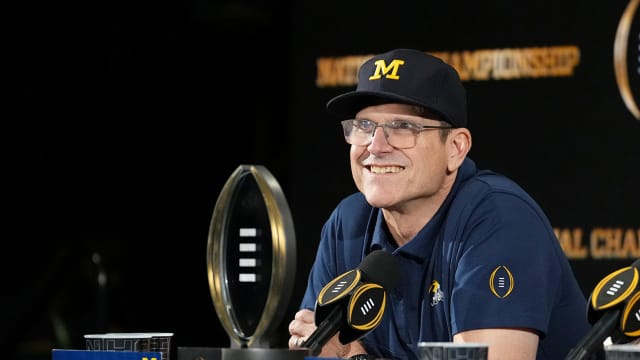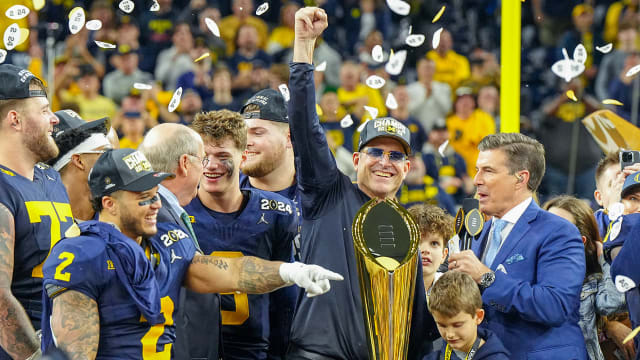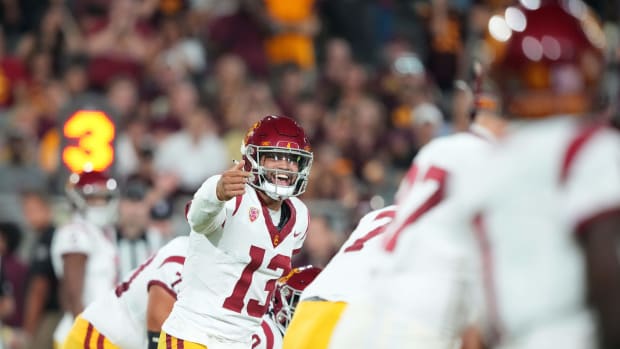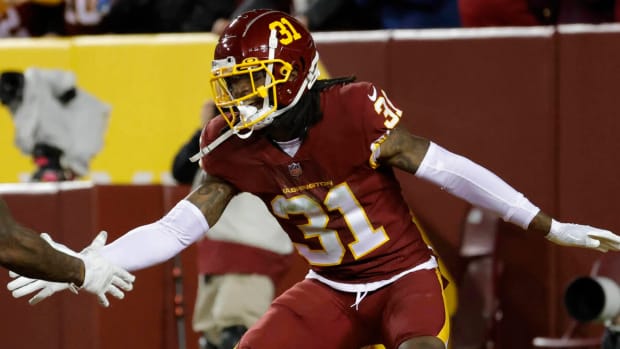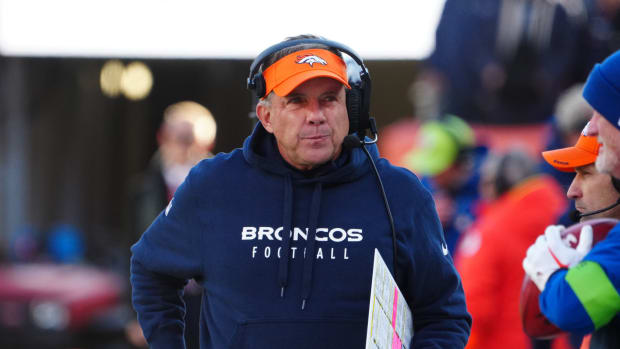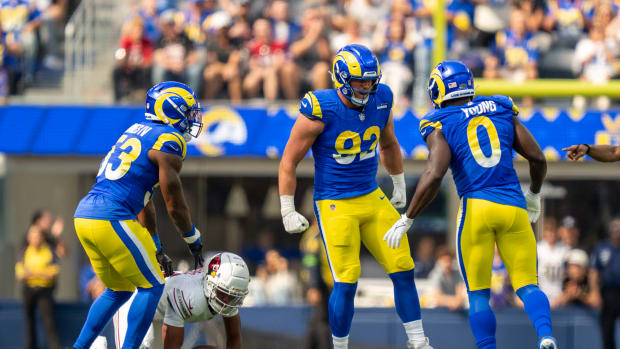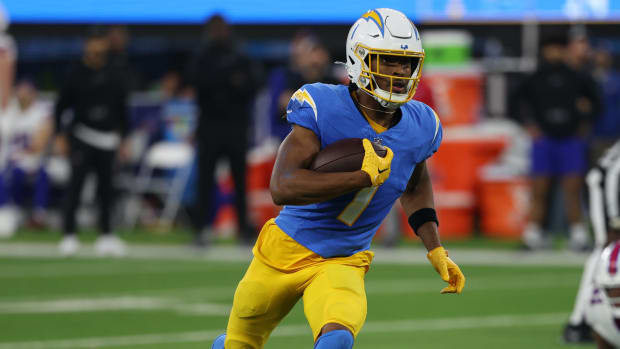Jim Harbaugh’s Move Back to the NFL Is As Complex As the Man Himself
Things that seem like they should be simple with Jim Harbaugh rarely are. It is what makes him fascinating to many and frustrating to some, and it is why the Los Angeles Chargers made the right hire.
In many ways, Harbaugh is built for the NFL. He has instilled exceptional toughness everywhere he’s coached. In the NFL, teams win on the margins, which means maximizing every roster spot; at Stanford, Harbaugh made fullback Owen Marecic a starting linebacker, too, and at Michigan, he recognized that a good receiver, Mike Sainristil, could be an exceptional defensive back. NFL head coaches have to make hard, impersonal decisions and still get players and coaches to believe in them, and many of them struggle to do both. Harbaugh has done it and will again.
And yes: He has some unfinished Lombardi Trophy business.
And yes: Any job with almost 26-year-old Justin Herbert locked up long term is an appealing job.

Harbaugh agreed to become the new head coach of the Chargers on Thursday.
Mark J. Rebilas/USA TODAY Sports
But … well, things that seem like they should be simple with Jim Harbaugh rarely are. I still believe what I wrote earlier this month, based on my reporting: Harbaugh wanted to stay at Michigan. I believe it was a preference between two genuinely appealing options, but it was still a preference.
Michigan’s national championship was the culmination of two three-year sagas: The one on the field, and the one off of it. They were intertwined.
Since 2020, Harbaugh wondered whether he would lose his job, kept it, won the Big Ten, interviewed for NFL jobs, came back, promised he wouldn’t interview again, won the Big Ten again, talked to NFL teams again, came back, got suspended twice, and won the national title. You can say that sounds like a coach who wanted to leave. I think it was a coach who wanted to stay—but in the end felt he should leave.
One reason Harbaugh’s last three teams won so much is that they were filled with players and coaches who were fully committed to one another. If Harbaugh sees anything less than that—even when there is obvious talent—it does not sit well with him. The Chargers are about to find out: Everybody needs to perform a function that Harbaugh finds valuable, or he will eventually replace them.
Somewhere along the way, that feeling of commitment between Michigan and Harbaugh got fractured, and it was never fully repaired. Again, this is complicated. Michigan athletic director Warde Manuel always wanted Harbaugh as his coach, from the lowest moments in 2020 to this week. The school was willing to pay Harbaugh at the top of the market.
But as I wrote earlier this month: The contractual hurdles were real. They were also revealing. Michigan made a lucrative offer in December that included a clause that Harbaugh could not interview with NFL teams this cycle. Harbaugh wanted protection in case the NCAA came down on him. As Yahoo Sports first reported, he requested a three-person arbitration panel in the event the school wanted to fire him. Sports Illustrated has learned that in the initial counterproposal from Harbaugh’s camp, those three people would not have been university employees. The school was not going to let three people from outside the university determine the future of its most prominent and highly paid employee.
These were all details the sides could have hashed out, but that isn’t the point. Michigan and Harbaugh were still going back and forth on them after all this time. What does that tell you?
College football fans love the theater of heroes and villains, but that’s not the real world. Harbaugh is a brilliant football coach who ran his program far more admirably than some of last year’s headlines imply. That does not mean he did everything right. Manuel is a smart athletic director who wanted Harbaugh and tried to keep him. That does not mean he did everything right, either.
There are plenty of schools that would have handed a national-title-winning coach anything he wanted and begged him to take it; look at what Texas A&M threw at Jimbo Fisher when he had a fraction of Harbaugh’s success there. Michigan does not operate that way. Sometimes that is admirable. Sometimes it is costly. Sometimes it is both.
In the end, the Chargers got the coach they wanted to hire, Michigan lost the coach it wanted to keep and Jim Harbaugh did what he did nine years ago this month: He chose a place that was all in for him, and he turned his brilliant, complicated, constantly churning mind toward bringing that place a championship.



































